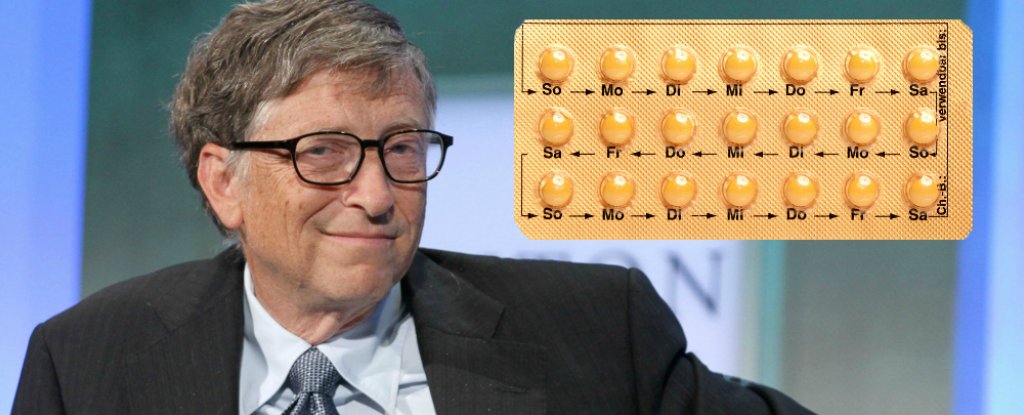
Gates, Pfizer, and the West’s Silent Stake in Controlling Africa’s Fertility

From Geneva to Seattle to Washington D.C., powerful institutions are pouring billions into Africa’s reproductive health sector. Their mission, they say, is to empower women with access to family planning tools, particularly long-acting reversible contraceptives (LARCs) like implants and intrauterine devices (IUDs).
But across the continent, a growing number of health experts and women’s rights groups are asking hard questions:
Whose agenda is really being served? And at what cost to bodily autonomy, local health systems, and democratic accountability?
At the centre of the current debate are large-scale contraceptive programmes, such as the Sayana® Press injectable partnership backed by the Bill & Melinda Gates Foundation, the Children’s Investment Fund Foundation (CIFF), Pfizer, and Becton Dickinson. These are distributed through public health systems at a guaranteed low price, but only in low-income and lower-middle-income countries, a category dominated by sub-Saharan African nations.
Other major funders and implementers include:
USAID (United States Agency for International Development)
UNFPA (United Nations Population Fund)
FCDO (UK government)
The World Bank
Packard Foundation
GAVI and PATH
Pharmaceutical companies such as Pfizer, Bayer, and Merck.
While donors frame these programmes as global initiatives, procurement and shipment data show that the vast majority of funded contraceptives are destined for African countries, including Kenya, Nigeria, Uganda, Ethiopia, Tanzania, the Democratic Republic of the Congo, Senegal, and Zambia.
UNFPA Supplies Partnership lists over 30 African countries among its primary beneficiaries.
USAID’s GHSC supply chain records show that most injectable and implant shipments go to sub-Saharan Africa.
The Gates/CIFF/Pfizer Sayana® Press deal explicitly applies to eligible countries under World Bank income thresholds, a group overwhelmingly located in Africa.
Smaller shipments go to South Asia (e.g., Bangladesh, Nepal, Pakistan) and Latin America, but Africa remains the central focus for donor-funded contraceptive programmes.
The current push for contraceptive technologies stirs fresh concern not only because of what’s being done today, but because of what has been done before.
In 1996, Pfizer conducted an unauthorised clinical trial in Kano, Nigeria, testing the antibiotic Trovan on children during a deadly meningitis outbreak. Eleven children died, and dozens suffered serious side effects, including paralysis and brain damage. The families said they were never properly informed or asked for consent.
Pfizer eventually settled out of court, but never formally admitted wrongdoing.
Pfizer’s experiment in Kano is a reminder that African lives have too often been treated as disposable. That case lives in the collective memory of Africans.
This history haunts current donor-backed contraceptive campaigns, especially when informed consent is still shaky, and African women are disproportionately targeted with long-term hormonal devices that women in the Global North are increasingly avoiding.
Empowerment or External Pressure?
Donors frame their goals in terms of women’s rights, maternal health, and economic opportunity. But such language often masks deeper population control agendas, with numeric fertility targets, performance indicators, and implant quotas written into contracts.
Funding priorities heavily favour implants, injectables, and IUDs, with few resources dedicated to short-term, non-hormonal methods or holistic reproductive education.
They call it ‘choice,’ but the only option they push is long-acting contraception. That’s not a choice. That’s pressure.
The contraceptive programmes may be implemented on African soil, but they are designed in boardrooms in Washington, Geneva, and London. Western governments and philanthropies decide what methods are distributed, what messages are promoted, and how progress is measured.
Local researchers and civil society organisations are often excluded from these conversations.
It’s colonisation through health care. Africans are not driving these programmes, they are driving Africans.
The Ethical Grey Zone of “Informed Consent”
Reports from Kenya, Ethiopia, and Ghana describe women receiving IUDs or injectables during childbirth, abortions, or emergency care, with minimal counselling. Many people are unaware of the device’s duration, potential side effects, or removal process.
You can’t consent to what you don’t understand. In too many cases, these women were not empowered, they were quietly controlled.
Pharmaceutical giants like Bayer, Pfizer, and Merck are central suppliers to these donor-funded programmes. While their involvement ensures mass production capacity, the range of options offered in Africa is narrower than in high-income countries, with a heavy bias toward LARCs and injectables.
Contraception should be about freedom, to choose when and whether to have children. But when programmes are built on target-driven logic, shaped by donors with histories of unethical practice, and carried out in systems too fragile to protect the vulnerable, the promise of empowerment begins to feel more like control.
Pfizer’s experiment in Nigeria wasn’t just a mistake, it was a message. If we don’t protect African women’s right to informed, voluntary, and dignified healthcare now, we’re doomed to repeat history.
Until Africans lead reproductive health policy in Africa, for Africans, the continent will remain a testing ground for foreign experiments with local consequences.
Read More:
- Canal+ Pulls Out Of Ghana Following Regulator’s Suspension Of Multichoice Service
- Historic U.S. Policies and CIA Influence Behind Foundational Black Americans’ Boycott of African Businesses
About The Author
Related Articles
The AFCON Final in Morocco and the Controversies That Followed
The Africa Cup of Nations final between hosts Morocco and Senegal ended...
ByWest Africa WeeklyJanuary 20, 2026Mali’s Transition Leader Attends Swearing-In of Guinea’s President Mamadi Doumbouya
Mali’s President of the Transition, General Assimi Goïta, represented the country in...
ByWest Africa WeeklyJanuary 19, 2026Malian Army Conducts Successful Surveillance Operation in Mopti Region
The Malian Armed Forces have carried out a successful territorial surveillance operation...
ByWest Africa WeeklyJanuary 19, 2026Niger’s Security Forces Record Major Gains Against Armed Groups
Niger’s Defence and Security Forces have reported significant results following a week...
ByWest Africa WeeklyJanuary 19, 2026












Leave a comment